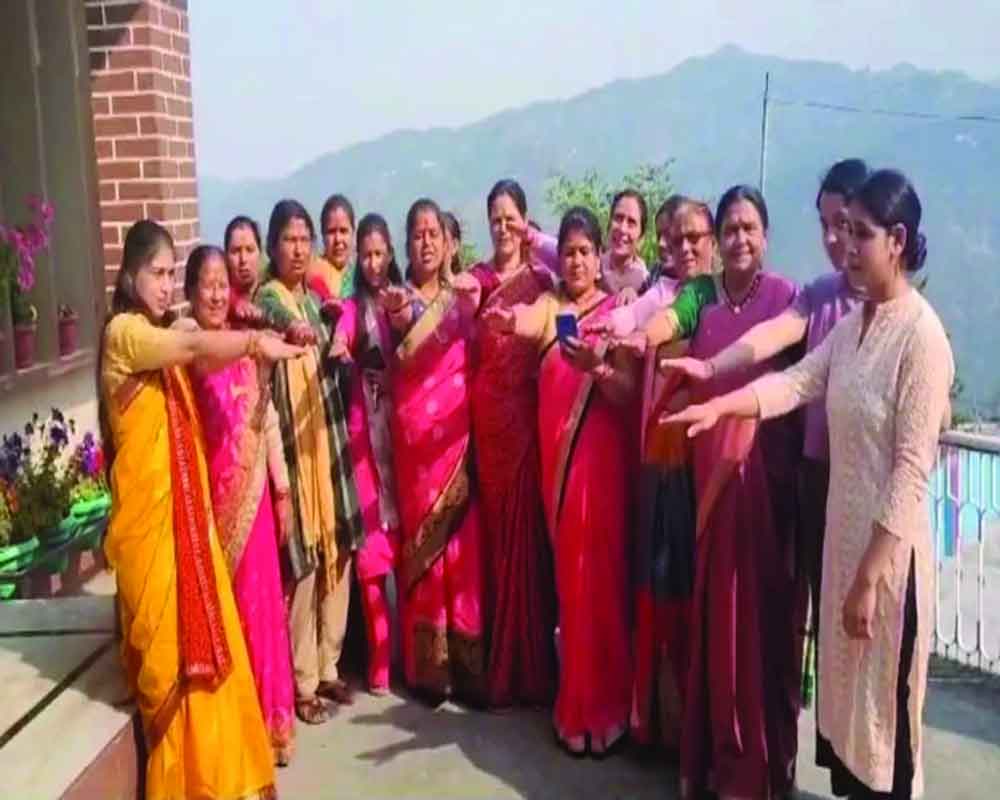From leading environmental crusades to confronting social injustices head-on, they embody the spirit of the region, epitomising resilience and fortitude
Women in Uttarakhand are renowned for their extraordinary resilience and hard work, characteristics deeply rooted in their Himalayan heritage. Despite grappling with the challenges of life in this rugged terrain, Uttarakhand’s women have consistently been at the forefront of social and environmental movements, epitomized by figures like Gaura Devi of the Chipko movement and Tinchari Mai (Deepa Nautiyal), who spearheaded the Anti-Liquor movement. These women have fearlessly confronted injustice, embodying the spirit of Uttarakhand. This article seeks to underscore the political engagement of women in Uttarakhand, shedding light on their role in bolstering democracy.
The political participation of women in Uttarakhand can be delineated into two primary spheres: first, women assuming leadership positions within the political domain and second, women exercising their electoral rights as voters.
Since the inception of the state, the representation of women in the legislative assembly has seen a significant albeit gradual rise. From four women members in the first assembly, the number has increased by 50% in the 2022 elections, marking a commendable stride. However, despite this progress, women remain a minority in the assembly, constituting a mere fraction of the total members. Presently, the legislative assembly boasts eight women members, including three Dalit women, the highest number in Uttarakhand’s history. Notably, Smt. Ritu Khanduri serves as the speaker, while Smt. Rekha Arya is the lone female minister in the cabinet. Despite these advancements, the disparity in political representation persists, underscoring the challenges women face in accessing political power.
While women’s representation in the parliamentary arena remains scant, with only two female MPs out of eight, the discrepancy between the female population (49%) and their political representation is stark. Despite their active participation in grassroots movements, women’s presence in formal politics remains disproportionately low.
Women in Uttarakhand constitute the backbone of the rural economy, grappling with issues like migration, environmental degradation and inadequate healthcare services. However, societal norms and economic constraints often deter their political involvement. Moreover, political parties’ reluctance to field female candidates exacerbates this disparity. For instance, in the upcoming 2024 Lok Sabha elections, the Congress has not nominated any female candidates, while the BJP has nominated only one, Mrs. Mala Rajya Laxmi Shah.
Nevertheless, women voters in Uttarakhand have emerged as a formidable force, outnumbering men in recent elections. Their increasing political awareness, fueled by issues directly affecting their lives, coupled with higher literacy rates and government initiatives like reservation quotas, has galvanized their participation. Policies such as 30% horizontal reservation in government jobs and 50% reservation in Panchayats have bolstered women’s political agency, enabling them to assume leadership roles at the grassroots level.
In the run-up to the 2024 Parliamentary elections, both major parties are vying for women’s support, employing diverse strategies. Congress has pledged financial assistance and job reservations for women, emphasizing women’s security and justice. Conversely, the BJP highlights its implementation of the Uniform Civil Code (UCC) as a milestone for women’s rights, coupled with grassroots mobilization efforts.
Prime Minister Narendra Modi’s appeal among women voters, attributed to his grassroots connect and initiatives like the Women Reservation Bill, further consolidates BJP’s electoral prospects. The “Modi factor” has resonated with Uttarakhand’s women, contributing to BJP’s continued dominance since 2017.
To bolster women’s empowerment, the state government has allocated a substantial gender budget for 2024-25, earmarked for bridging gender disparities and promoting equality. Additionally, measures like deploying women employees to oversee polling booths and facilitating pregnant women’s access to voting booths underscore the commitment to inclusive governance.
In conclusion, Dr Ambedkar’s assertion that a community’s progress is contingent upon women’s advancement holds for Uttarakhand. While women have historically been instrumental in social movements, their underrepresentation in formal politics remains a pressing concern. Addressing these challenges is imperative for ensuring women’s political representation and expediting the state’s development. As Uttarakhand gears up for the upcoming Chunav Kauthig, with women comprising 48.1 per cent of the electorate, their increased participation promises to be a harbinger of democracy’s triumph in the state.
(The writer is a research scholar; views are personal)


























